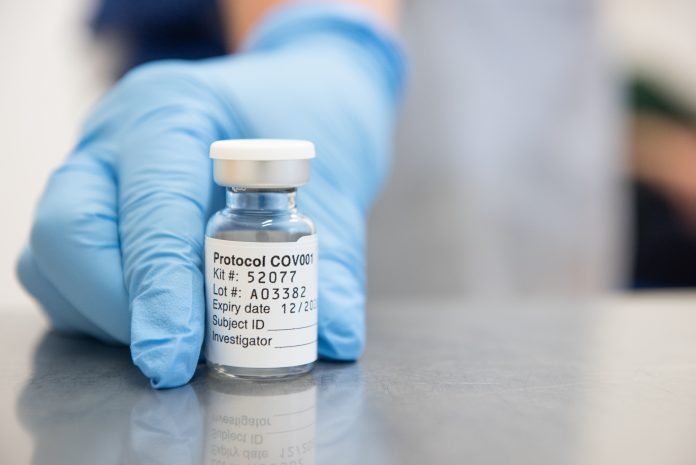As the world continues to grapple with the Covid-19 pandemic, the race is heating up to find a vaccine that could end the pandemic.
Following recent headline dominating vaccine news from a number of key players in the vaccine race (click here and here), the University of Oxford, in collaboration with pharmaceutical giant, AstraZeneca, has announced that interim trial data from its Phase 3 trials show its vaccine candidate, ChAdOx1nCoV-2019, is effective at preventing Covid-19 and offers a high level of protection.
“The announcement … takes us another step closer to the time when we can use vaccines to bring an end to the devastation caused by SARS-CoV-2,” says Professor Sarah Gilbert, Professor of Vaccinology at the University of Oxford.
When combining data from tests conducted using two different dose regimes, the preliminary data have shown that the vaccine candidate is 70.4% effective:
- The vaccine was found to be 90% effective if administered at a half dose and then at a full dose.
- The vaccine was found to be 62% effective if administered in two full doses.
These efficacy findings – particularly the 90% efficacy of the half dose regime – are significant as this would mean that more people would be able to be vaccinated.
“These findings show that we have an effective vaccine that will save many lives,” says Professor Andrew Pollard, Director of the Oxford Vaccine Group and Chief Investigator of the Oxford Vaccine Trial.
“Excitingly, we’ve found that one of our dosing regimens may be around 90% effective and if this dosing regime is used, more people could be vaccinated with planned vaccine supply.”
Additionally, as reported by The Sydney Morning Herald, according to Professor Pollard the reason as to why the half-dose regimen has shown a higher efficacy and a “better level of protection” than the two-dose regimen is that “by giving a smaller first dose we are priming the immune system differently, we are setting it up better to respond”.
Prevention and transmission rates
According to the announcement by the University of Oxford, the data from the Phase 3 clinical trials, which included more than 24,000 participants from diverse racial and geographical groups in the UK, Brazil and South Africa, also suggests that the half and full dose regimes could prevent transmission of the virus, evidenced by lower rates of asymptomatic infection in the vaccines.
Additionally, there were reportedly no hospitalised or severed cases of the virus in anyone who received the vaccine.
More information on this is expected to become available when trial data are next evaluated.
Trials are continuing in the United States, Kenya, Japan and India, and the trial team expect to have under 60,000 participants by the end of 2020.
These trials are expected to provide regulators with further information about the efficacy and safety of the Oxford candidate vaccine, including its ability to both protect against and stop the transmission of Covid-19.
Transported and stored at domestic fridge temperatures
While news surrounding other vaccine candidates, have so far revealed that the vaccines will require extreme transportation and storage temperatures, being made from a weakened version of adenovirus means that this vaccine candidate is able to be transported and stored at domestic fridge temperatures (2-8 degrees C).
This means the vaccine candidate can be easily distributed using existing medical facilities such as doctor’s surgeries and local pharmacies, allowing the vaccine, if approved, to be deployed rapidly.
“[This] marks an important milestone in our fight against the pandemic,” says Pascal Soriot, Chief Executive Office, AstraZeneca.
“This vaccine’s efficacy and safety confirm that it will be highly effective against Covid-19 and will have an immediate impact on this public health emergency.
“Furthermore, the vaccine’s simple supply chain and our no-profit pledge and commitment to broad, equitable and time access means it will be affordable and globally available supplying hundreds of millions of doses on approval.”
Australia’s vaccine agreement with Oxford
As previously reported by Retail Pharmacy, Australia has secured early access for the Oxford vaccine candidate.
Source: University of Oxford
Feature image credit: University of Oxford, John Cairns









